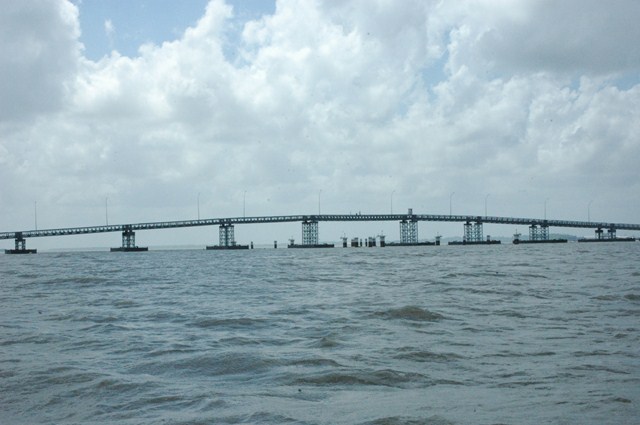
Compulsory Acquisition and Its Negative Effects
When a government or statutory authority decides that an area of private lands is necessary for social and economic development that will benefit society, they can decide to commit compulsory acquisition. Compulsory acquisition happens when a government exercises its power to acquire private lands without the willing consent of its owner. Although the owner of the property is often fairly compensated,
Compulsory Acquisition in Guyana
Although compulsory acquisition primarily affects citizens, it does affect businesses as well. Earlier this month, the Guyana government seized control of the Berbice River Bridge, a pontoon bridge over the Berbice River near New Amsterdam in Guyana. The Berbice Bridge Company Inc. (BBCI) had been negotiating with the Guyana government to come to an agreement regarding necessary repairs for the pontoons, and decided that a spike in tolls was the best option. However, citing a public safety concern, the government let the BBCI know that they were going to take temporary custody of the bridge instead.
This action falls under the umbrella of compulsory acquisition, which is generally frowned upon due to its disruptive and authoritarian nature. Even when compensation is generous and the government procedures are fair and efficient, the impact of these decisions entails a notable toll on people, businesses, and communities. If the process is not done with the utmost care, the economic, social, and political costs can be damaging. Although there is often a legitimate reason for compulsory action, this type of power-move should be exercised sparingly and with caution to not disrupt businesses and citizens, and only when truly necessary.
This move by the Guyana government has been criticized by the company and citizens of the state, and although it has been stated to be temporary, the decision was received with uneasiness. These types of decisions create a distrust between businesses, communities, and government because those who are politically aware understand the action is an infringement on property rights with implications that have been severe in countries all around the world.
Consequences of Compulsory Acquisition
The consequences of compulsory acquisition trickle down through several factors of societal oppression. In rural areas of Asia and Africa, large-scale land acquisitions (LSLA) have affected large populations of indigenous peoples and local communities who have inhabited and managed the vast majority of the lands acquired for generations. These communities depend on farming these lands for food and income, and upon losing these lands, their lives are uprooted.
Land acquisition is a constant theme of globalization as more companies expand into foreign markets. U.S. expansion is occuring on most continents, with 62 percent of companies conducting operations in Asia and 16 percent of companies managing operations in Africa and so forth. In these rural areas, the women suffer most when losing their land as oftentimes their livelihoods are not their own, rather that of their male counterparts. Upon losing their land, compensation goes towards the men who have technically inherited the land.
Displacing these vulnerable local communities of indigenous folks has long lasting consequences, not only for the women but across the entire community. Infringing on a people’s ability to care for their own and live their lives on their native lands is a common misstep by governments and companies who don’t place sufficient value on what these lands mean to the people who inhabit them. Compulsory acquisition has far-reaching consequences no matter how carefully it is done, which is why governments should refrain from exercising their power to do so as much as possible.




